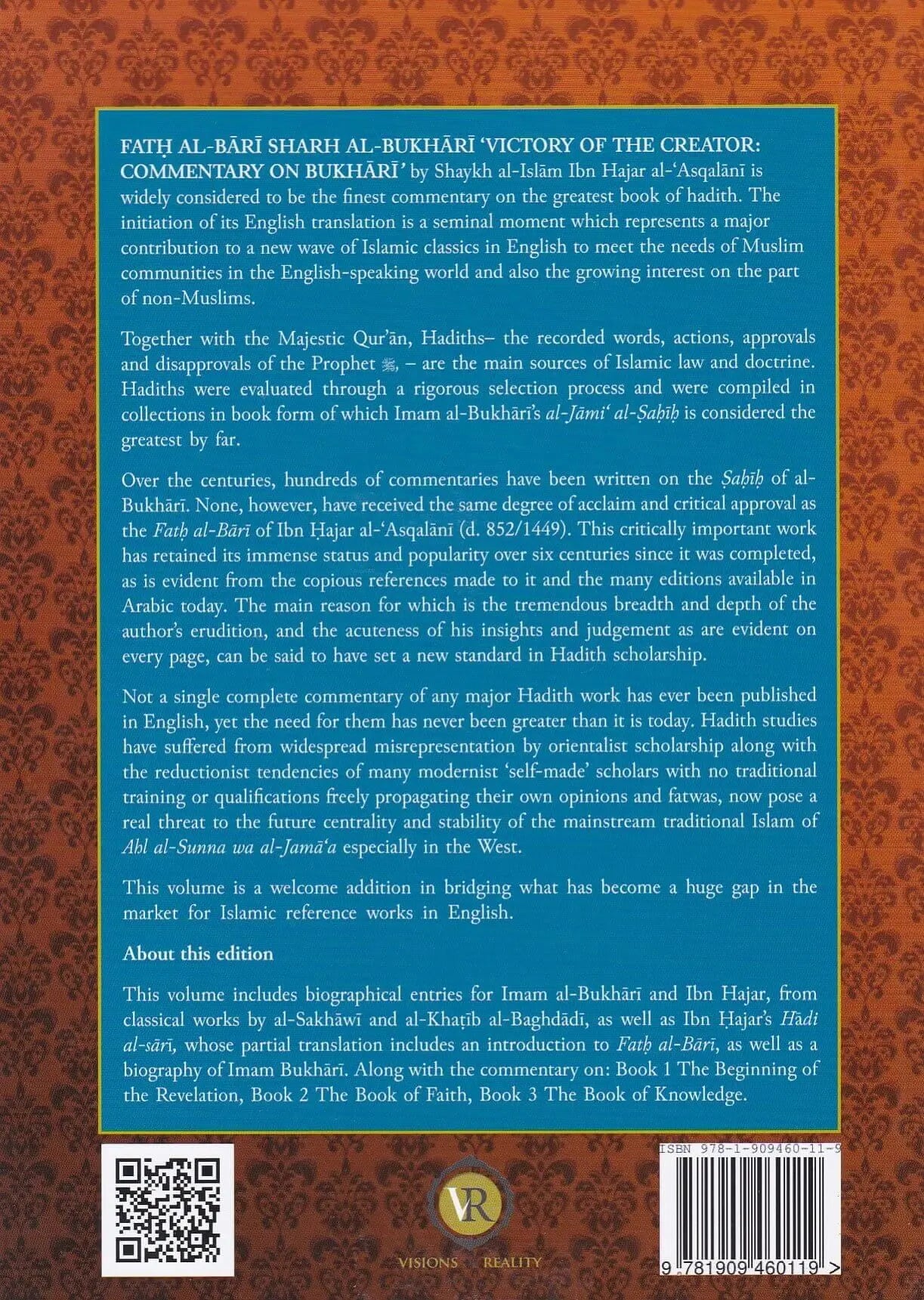About The Book
Fatḥ al-Bārī
Together with the Majestic Qur’ān, Hadiths– the recorded words, actions, approvals and disapproval of the Prophet ﷺ, – are the main sources of Islamic law and doctrine. Hadiths were evaluated through a rigorous selection process and were compiled in collections in book form of which Imam al-Bukhārī’s al-Jāmi‘ al-Ṣaḥīḥ is considered the greatest.
Over the centuries, hundreds of commentaries have been written on the Ṣaḥīḥ of al-Bukhārī. None, however, have received the same degree of acclaim and critical approval as the Fatḥ al-Bārī of Ibn Ḥajar al-‘Asqalānī (d. 852/1449). This critically important work has retained its immense status and popularity over six centuries since it was completed, as is evident from the many editions available in Arabic today. The main reason for which is the tremendous breadth and depth of the author’s erudition, and the acuteness of his insights and
Not a single complete commentary of any major Hadith work has ever been published in English, yet the need for them has never been greater than it is today. Hadith studies have suffered from widespread misrepresentation by orientalist scholarship along with the reductionist tendencies of many modernist ‘self-made’ scholars with no traditional training or qualifications freely propagating their own opinions and fatwas, now pose a real threat to the future centrality and stability of the mainstream traditional Islam of Ahl al-Sunna
About This Edition
This is an immense publishing project, it is hoped that a new volume will be added every few months; the total number of volumes will be in the region of twenty.
At
This volume includes biographical entries for Imam al-Bukhārī and Ibn Hajar, from classical works by al-Sakhāwī and al-Khaṭīb al-Baghdādī’s, as well as Ibn Ḥajar’s Hādi al-sārī, whose partial translation includes an introduction to Fatḥ al-Bārī, as well as a biography of Imam Bukhārī. This leads to the commentary of Books 1, 2, and 3 of Sahih al-Bukhari.




